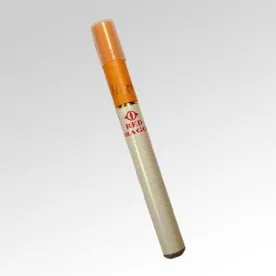In response to growing concern about e-cigarette use by children and teens, the FDA has intensified its enforcement of illegal sales and advertising of new electronic nicotine delivery systems (ENDS) such as Juul, myblu and KandyPens.
The FDA has stated it is committed to decreasing smoking and nicotine addiction in youth under the age of 18 and has launched several initiates to achieve this goal. One is a multi-level plan to reduce nicotine in traditional, combustible cigarettes. This plan, which seems long overdue, does not appear to include reduction in nicotine available via ENDS devices, despite that some deliver as much or more nicotine than cigarettes. The FDA also neglected to extend its ban on the use of sweet, fruity flavors that appeal to children and teens. Juul, for example, comes with fruit-flavored liquid pods containing the nicotine equivalent of a full pack of cigarettes.
Juul has recently become very popular with school age children prompting educators and medical professionals to call it a major teen health problem. The light weight device that looks like a thumb drive is easy to hide, easy to share, and apparently easy for underage kids to buy in retail stores—including online. This is disturbing because, as the FDA admits, “nicotine in these products can rewire an adolescent’s brain, leading to years of addiction.” In a Kaiser Health article, substance abuse counselor, Milagros Vascones-Gatski, stated she had “never seen a tobacco product become so popular so quickly.”
The FDA, which is responsible for protecting the public health, might have been able to prevent Juul fever had it not backed off its 2017 plan to implement FDA product approval over e-cigarette products. Instead, the FDA pushed product oversight off to the years 2021-2022 to award more time for review of potential harms, and ostensibly to prevent a chilling effect on the vaping industry. The industry that is projected to be worth over $32 billion dollars a year by the time product applications will be required? That choice makes little sense to teen health advocates and educators who daily observe smoke billowing out from behind desktops and bathroom doors in schools.
To be fair, the FDA did institute rules against sales to minors. And this is where they are now concentrating their enforcement efforts. The recent press release listed the following actions to prevent teen access to ENDS devices:
-
FDA cites 40 retailers for violations related to youth sales of JUUL e-cigarettes
-
Agency announces a new blitz of retail establishments targeting youth sale violations
-
Agency takes new action to examine youth appeal of JUUL
-
Agency takes steps to foreclose online sales of JUUL to minors
The FDA press release did not specifically address recent research into damage caused by the use of e-cigarettes, including a study that revealed heightened levels of cancer causing toxins in teens who vape. Nor did it address the 2017 USFA/THEMA report that blamed catastrophic injuries from e-cigarette explosions on the devices product design.



 />i
/>i

